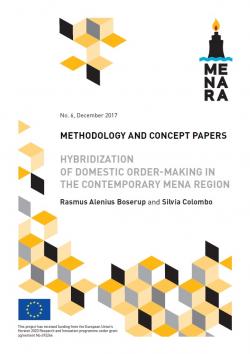Hybridization of Domestic Order-Making in the Contemporary MENA Region
The domestic political orders in the MENA countries are going through a period of crisis and restructuring. Since mass protests spread from Tunisia and Egypt to other countries in the region in 2011 a number of worrying trends have affected the forms and functions of states, regimes, contentious actors and collective identities. Conceptualizing these trends as part of a broader process of hybridization of domestic political order-making in the MENA region sheds light both on empirical developments and on the analytical categories that scholars make use of to describe and theorize them. By hybridization we refer to a process in which the political order-making in the region occurs according to new and hybrid patterns that transcend or escape the processes, concepts and categories known in the past and described in the existing academic literature.
-
Details
Roma, IAI, December 2017, 23 p. -
In:
-
Issue
Methodology and Concept Papers 6
Introduction: Trends in the Crisis
1. First Trend: The Erosion of State Capacities
2. Second Trend: The Restoration of Authoritarian Regimes
3. Third Trend: The Militarization of Contentious Politics
4. Fourth Trend: The Pluralization of Collective Identities
Conclusion: Studying Hybrid Order-Making in the Post-2011 MENA Region
References



